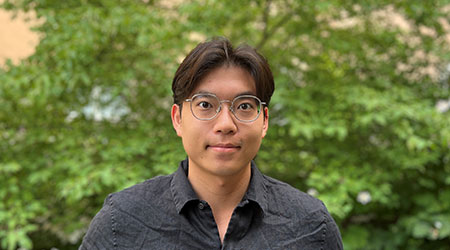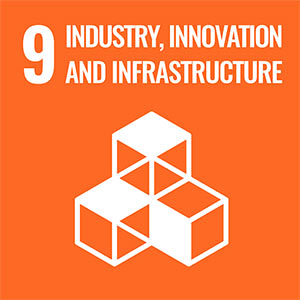MSc Nanotechnology
Nanotechnology is an exciting field within science and technology related to materials and device structures with characteristic dimensions in the nanometer regime. You will learn how to create, measure, model and apply nanostructures and nanodevices with unique properties and functions. Graduates face vast career opportunities as nanotechnology penetrates several technology sectors, including medicine, energy, electronics and materials.

Nanotechnology at KTH
From a solid foundation in basic materials science, the programme gives you a deep understanding of size-dependent materials, device and system properties, and also how a controlled manipulation of the microstructure can tailor these properties down to the atomic or molecular level. Furthermore, it provides comprehensive knowledge of various nanoscale devices and their applications and fabrication methods. Particular emphasis is paid to the understanding and usage of advanced characterisation methods to assess detailed materials and device properties. The programme is closely linked to the extensive research activities at the KTH Electrum laboratory , a world-leading resource for the education, research and product development related to micro and nanofabrication. It is also closely connected to the Albanova Nanolab , which is a physics research centre operated jointly by KTH and Stockholm University.
The final semester degree project allows you to carry out an in-depth study within their specialisation and demonstrate the skills acquired during their studies. It can be carried out at an academic or industrial institution, needs to be relevant to the main field of study for the master's degree, and is scheduled for the last semester of the programme.
This is a two year programme (120 ECTS credits) given in English. Graduates are awarded the degree of Master of Science. The programme is given mainly at KTH Campus in Stockholm by the School of Electrical Engineering and Computer Science (at KTH).
Courses in the programme
The courses in the programme cover topics such as nanoscience, nanodesign, nanofabrication, nanocharacterisation, nanoapplications, scientific methodology, societal implications.
Courses in the master's programme in Nanotechnology
Students
Find out what students from the programme think about their time at KTH.

Future and career
The master's programme in Nanotechnology prepares you for a career in a wide range of areas in materials science, semiconductor, microsystems, and applied physics. Applications related to, for example, the Internet of Things and life sciences offer plenty of exciting job opportunities in high-tech companies. The programme focuses on advanced nanoscale characterisation tools, and the unique experience of a state-of-the-art academic cleanroom environment will make you very competitive in the job market. Graduates with a specialisation in nanoscale materials are well equipped to handle the sustainability challenges of modern society. Nanotechnology is also a major academic research field, and the programme provides a solid foundation for graduate studies at highly ranked universities, including KTH. Typical career paths for graduates include nanoscientist, nanoscience educator, R&D engineer, industrial expert,startup founder or chief technology officer, industrial consultant or expert at governmental agency.

Sustainable development
Graduates from KTH have the knowledge and tools for moving society in a more sustainable direction, as sustainable development is an integral part of all programmes. Nanotechnology as a subject area has a strong inherent connection to sustainability aspects in that it represents a technological leap based on scientific innovations towards increasingly energy-efficient and high-performance components and systems, improved IT solutions (for example allowing for reduced travelling), while allowing for a general and more resource-efficient and sustainable energy management, environment and infrastructure. In this way, many of the programme's courses have an implicit link to sustainable development and explicitly state it in their learning objectives. As such, the programme addresses many environmental and societal challenges. Three key sustainable development goals that can be considered particularly relevant by the master's programme in Nanotechnology are:



Good Health and Well-being: The medical application of Nanotechnology, Nanomedicine, allows for new diagnostic tools and therapy schemes, for example, by virtue of advanced drug delivery systems or in vivo imaging. Nanotechnology is also instrumental in down-scaling lab-on-a-chip systems for high-efficiency, large throughput medical diagnosis. Finally, it is also essential in developing Internet-of-Things (IoT) solutions that can allow for automatic health monitoring or self-diagnosis/treatments.
Decent Work and Economic Growth: Automation and advanced manufacturing methods greatly improve working conditions and business margins, and rely on ever-more sophisticated computing, communication and sensing systems. These developments take account of new materials, devices and integration schemes that are driven by innovations in Nanoelectronics and Nanophotonics.
Industry, Innovation and Infrastructure: Nanotechnology is currently one of the fastest-growing industry sectors worldwide and has tremendous innovation potential. The programme establishes and strengthens the knowledge base for education and future business opportunities in rapidly moving "high-tech" fields of clear benefit to society.
Faculty and research
Due to the cross-disciplinary character of the master's programme in Nanotechnology, it involves faculty, courses and resources from several schools, research departments and centres at KTH:
- School of Electrical Engineering and Computer Science: Department of Electrical Engineering
- School of Engineering Sciences: Department of Applied Physics
- School of Electrical Engineering: Department of Micro and Nanosystems
- School of Biotechnology: Division of Industrial Biotechnology
- The Electrum Laboratory
- The Albanova Nanolab


